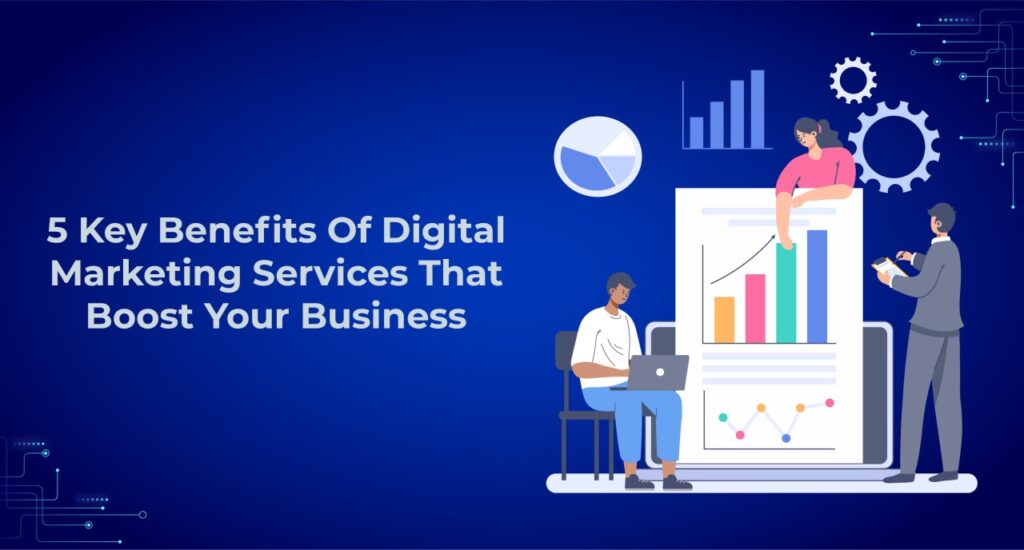What is Digital Marketing?
Digital marketing refers to the promotion of products or services through digital channels such as websites, social media, email, search engines, and more. Unlike traditional marketing, it focuses on reaching customers online where they spend most of their time.
Why Digital Marketing Matters
In today’s digital age, people turn to the internet for almost everything. Whether it’s shopping, entertainment, or gathering information, being visible online is crucial for businesses. Digital marketing allows companies to connect with their target audience efficiently and cost-effectively.
Key Benefits of Digital Marketing
- Cost-Effective: Digital campaigns can be more budget-friendly than traditional ads.
- Measurable Results: You can track the performance of your campaigns in real-time.
- Targeted Reach: Ads can be tailored to specific demographics, interests, and behaviors.
- Global Reach: Digital marketing transcends geographic boundaries.

Core Components of Digital Marketing
1. Search Engine Optimization (SEO)
SEO involves optimizing your website to rank higher on search engines like Google. It helps drive organic (unpaid) traffic to your site.
- On-Page SEO: Focuses on optimizing individual pages with keywords, meta tags, and quality content.
- Off-Page SEO: Involves building backlinks and promoting your site on external platforms.
- Technical SEO: Ensures your website is user-friendly and loads quickly.
- 2. Content Marketing
- Content is king in digital marketing. High-quality, valuable content attracts and engages audiences.
- Blog Posts: Informative articles that educate readers.
- Videos: Engaging content that can be shared across platforms.
- Infographics: Visual content that simplifies complex information.
- 3. Social Media Marketing
- Social media platforms like Facebook, Instagram, Twitter, and LinkedIn are powerful tools for connecting with your audience.
- Organic Posts: Regular updates and interactions with followers.
- Paid Ads: Sponsored content that reaches a broader audience.
- 4. Email Marketing
- Email marketing is a direct way to reach customers. It’s ideal for sharing updates, promotions, and personalized messages.
- Newsletters: Regular updates sent to subscribers.
- Automated Campaigns: Pre-scheduled emails triggered by user actions.
- 5. Pay-Per-Click Advertising (PPC)
- PPC ads appear at the top of search results or on social media platforms. Advertisers pay only when users click on their ads. Google Ads is one of the most popular PPC platforms.
- Building a Digital Marketing Strategy
- 1. Define Your Goals
- What do you want to achieve? Your goals could include increasing website traffic, generating leads, or boosting sales. The Ultimate Guide to Digital Marketing for Beginners
- 2. Identify Your Target Audience
- Understanding your audience helps tailor your marketing messages. Consider their demographics, interests, and online behavior.
- 3. Choose the Right Channels
- Select platforms that align with your audience’s preferences. For example, Instagram might be ideal for visual content, while LinkedIn suits B2B marketing. The Ultimate Guide to Digital Marketing for Beginners
- 4. Create Engaging Content
- Content should be informative, entertaining, and relevant. Use a mix of formats like blogs, videos, and infographics.
- 5. Optimize for SEO
- Incorporate relevant keywords into your content. Ensure your website is fast, mobile-friendly, and easy to navigate.
- 6. Use Analytics Tools
- Tools like Google Analytics help track website traffic and user behavior. Social media platforms also offer insights into post performance.
- Top Digital Marketing Tools for Beginners
- Google Analytics: Tracks website traffic and user behavior.
- Canva: Helps create visual content.
- Mailchimp: Manages email marketing campaigns.
- Hootsuite: Schedules and manages social media posts.
- SEMrush: Provides SEO and competitive analysis.
- Common Digital Marketing Mistakes to Avoid
- Ignoring Mobile Users: Ensure your website and content are mobile-friendly.
- Not Measuring Results: Regularly monitor your campaign performance.
- Overlooking SEO: SEO is vital for organic traffic.
- Focusing Solely on Sales: Provide value through informative content, not just promotional messages.
- Future Trends in Digital Marketing
- AI and Automation: AI tools help personalize customer experiences and automate repetitive tasks.
- Voice Search Optimization: With the rise of smart speakers, optimizing for voice search is essential.
- Video Content Dominance: Platforms like YouTube and TikTok highlight the importance of video marketing.
- Interactive Content: Quizzes, polls, and interactive infographics engage users more effectively.

- Conclusion
- Digital marketing is a powerful way to reach and engage your audience online. By understanding its core components and creating a strategic plan, beginners can harness its potential to grow their business. Remember, success in digital marketing comes from consistent effort, experimentation, and staying updated with industry trends. The Ultimate Guide to Digital Marketing for Beginners
- FAQs
- 1. What is the best digital marketing strategy for beginners?
- Start with content marketing and SEO. Focus on creating valuable content that attracts organic traffic.
- 2. How long does it take to see results from digital marketing?
- Results vary depending on the strategy. SEO can take months, while PPC ads can show immediate results.
- 3. Is social media marketing effective for small businesses?
- Yes! Social media allows small businesses to connect with their audience without a large budget.
- 4. Can I do digital marketing myself?
- Absolutely! Many beginners start by learning the basics through online courses and tutorials.
- 5. How much should I budget for digital marketing?
- Your budget depends on your goals and chosen platforms. Start small and scale as you see results.
- DIDITAL MARKETIN
- The Ultimate Guide to Digital Marketing for Beginners
The Ultimate Guide to Digital Marketing for Beginners
